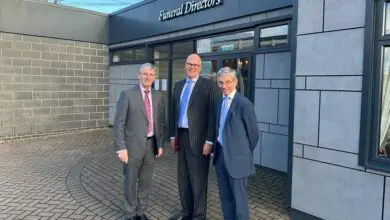Regulatory scrutiny of the funeral market

Both HM Treasury and the CMA are currently investigating the funerals sector. HMT has been looking into the pre-paid funerals market and has recently launched a consultation on its proposal to bring funeral plan providers within the remit of the Financial Conduct Authority. HMT sees this as the most effective policy response for strengthening the regulation of the market.
The CMA’s focus
Meanwhile the CMA launched a market investigation into competition in the supply of services by funeral directors and the supply of crematoria services in March this year. The CMA is concerned that people are paying higher prices for funerals than can be justified. It referred to consistent price increases in the sector and the inability of consumers to make meaningful comparisons between different providers at difficult times of their lives. The CMA has highlighted the vulnerability of customers at the point of purchase throughout. In March this year, in conjunction with Age UK and the Money Advice Service, the CMA produced advice for those who need to arrange a funeral (available here). Its investigation will run until September 2020.
The CMA has said it is concerned about:
- The rise in cost of organising a funeral, the essential elements of which have increased by twice the rate of inflation for the last 14 years according to the CMA
- The vulnerability of many people when organising a funeral, which may mean that they are not in a position to look at a range of choices
- Reluctance of firms to publish/disclose clear prices, including online, or to provide comprehensive information on quality and range, making it difficult for people to compare funeral directors
- Low numbers of crematoria providers in local areas, and difficulty for new companies to enter the market due to the planning regime and high fixed costs; and high prices in relation to crematoria services
- Work the CMA will carry out
- The CMA is currently conducting hearings to gather information and ask for views from main parties and interested parties. It is also carrying out a consumer survey (draft questions are available to see here).
Once hearings and survey has been completed the CMA will publish working papers for comment. Working papers will set out some initial analysis and might include work on the competitive landscape, profitability, barriers to market entry and expansion, information on fees and quality and any other important aspects of the investigation. The working papers and responses to them will inform the CMA’s provisional decision which will be published early in 2020. The provisional decision will include the CMA’s views on what remedies may be required.
In spring 2020 the CMA will conduct hearings to gather views on its provisional decision and publish a final decision by September 2020.
Possible CMA remedies
Following a market investigation, a wide range of legally enforceable remedies are available, aimed at making the market(s) more competitive in the future. The CMA can take action itself as well as well as recommending that others take action.
The CMA will be focussed on remedies to address problems such as higher prices, lower quality or less choice of services, or less innovation than would be expected in a competitive market. Wherever possible the CMA will seek to significantly increase competitive pressures in a market within a reasonable period of time. It is usual for the CMA to come up with a package of remedies. The remedies must be reasonable and proportionate.
Remedies are conventionally classified as either structural or behavioural. Structural remedies are generally one-off measures that seek, in market investigations, to increase competition by altering the competitive structure of the market (eg breaking up firms). Behavioural remedies are generally ongoing measures that are designed to regulate or constrain the behaviour of parties in a market and/or empower customers to make effective choices. Behavioural remedies are more common.
Although it has not yet concluded that remedies are needed, this is a likely outcome of this investigation. The CMA has said that the aim of any package of remedies in the funerals sector should be to reset the market such that people organising a funeral can be assured of a good quality service at a reasonable cost, while recognising that a funeral is a highly personal occasion, the arrangement of which entails much more than just a commercial interaction with a crematorium or funeral director.
Possible remedies could include:
- Transparency remedies to encourage and help customers to shop around and compare funeral directors on the basis of price and the quality and nature of the service they offer (eg funeral directors could be required to make their price lists available online and set out their price lists according to a standardised format)
- Regulatory reform – the CMA could make a recommendation to the Government that a statutory code of practice be drawn up for England, Wales and Northern Ireland and that funeral directors be licensed. It could recommend that a funerals regulator be established
- Price regulation – a new regulator or the CMA itself could design, implement and enforce some form of safeguard price regulation which could, for example, control the core elements of a funeral or provide protection for the most vulnerable customers
- Changes to the planning system to encourage greater competition e.g. Local Authorities running tenders for the construction and operation of crematoria for an agreed franchise period
How to engage constructively with the CMA
It will be important to engage with the CMA as it carries out a detailed assessment to ensure identified concerns are properly understood. This will need to be a mixture of legal and economic assessment and taking into consideration external political factors. The political context of the investigation is highly relevant with widespread concern in relation to vulnerable consumers carrying out what has been described as the ultimate distress purchase.
Constructive engagement will involve putting together a strategic narrative and then responding to the CMA’s analysis and views. It might also involve the parties to the investigation carrying out their own analysis to supplement that of the CMA.
The specific design of any remedies will be critically important and the costs of introducing any regulatory regime will need to be taken fully into account. Parties will need to engage with the CMA to help it understand the practicability, impact and cost of proposed remedies, as well as establishing which providers will need to be subject to them. Even assuming the CMA concludes a package of remedies is required, not all components may need to apply to all firms. Smaller firms should ensure their views are heard.
The issues raised in this market investigation are complex given the large number of different organisations involved, a lot of work lies ahead for the CMA and the parties.







